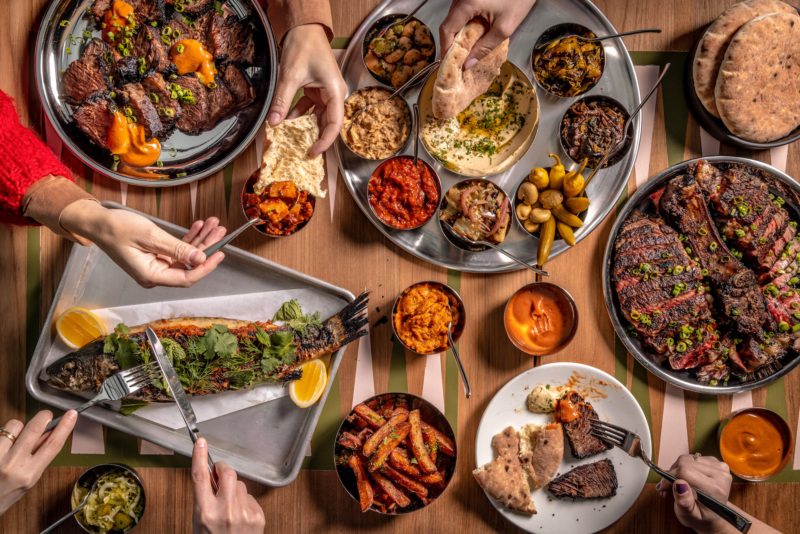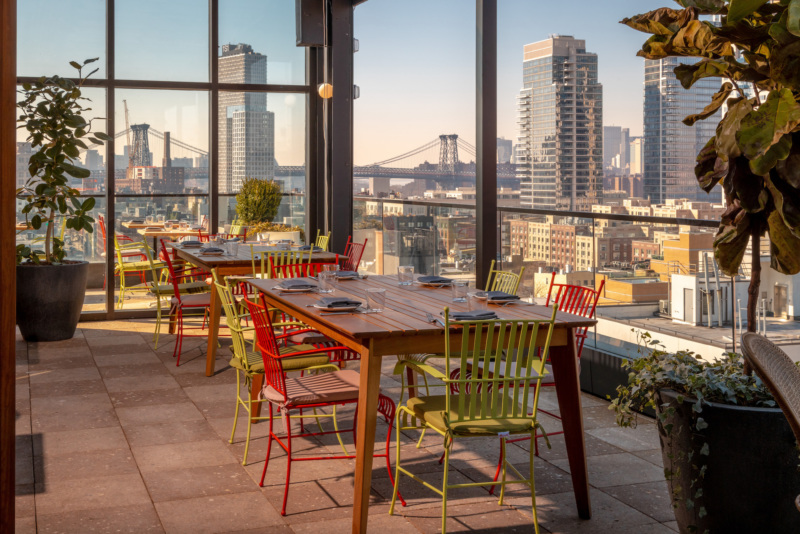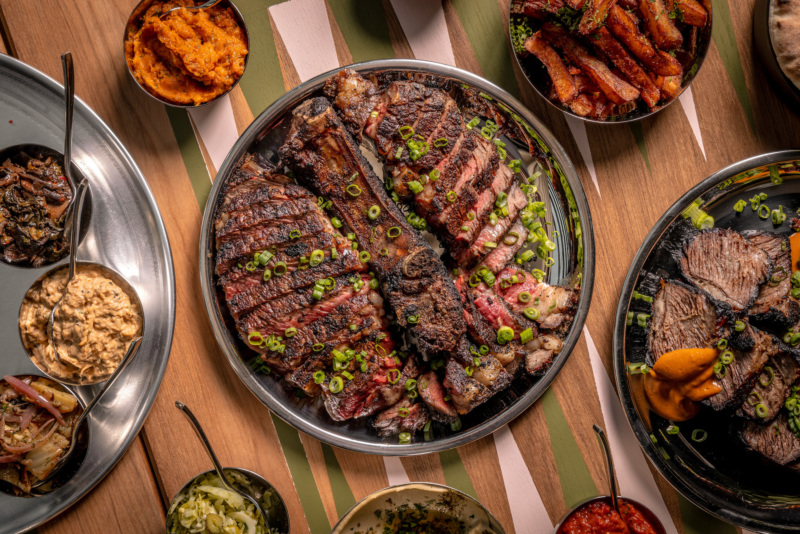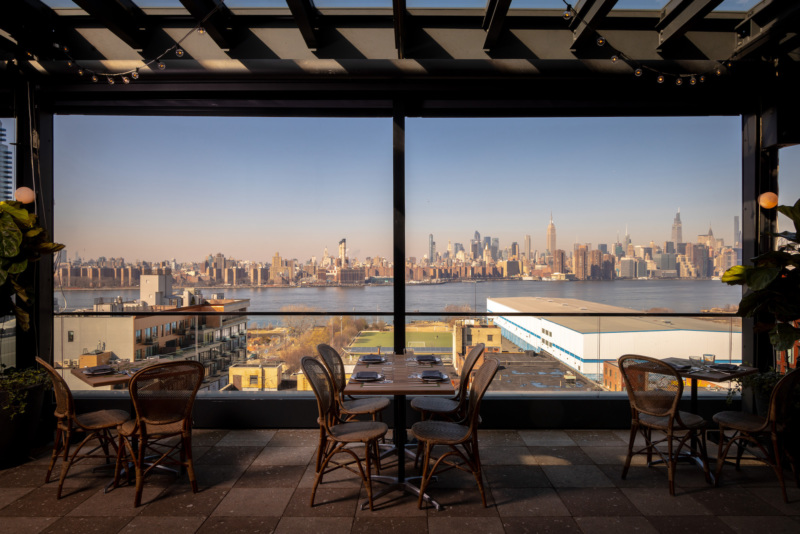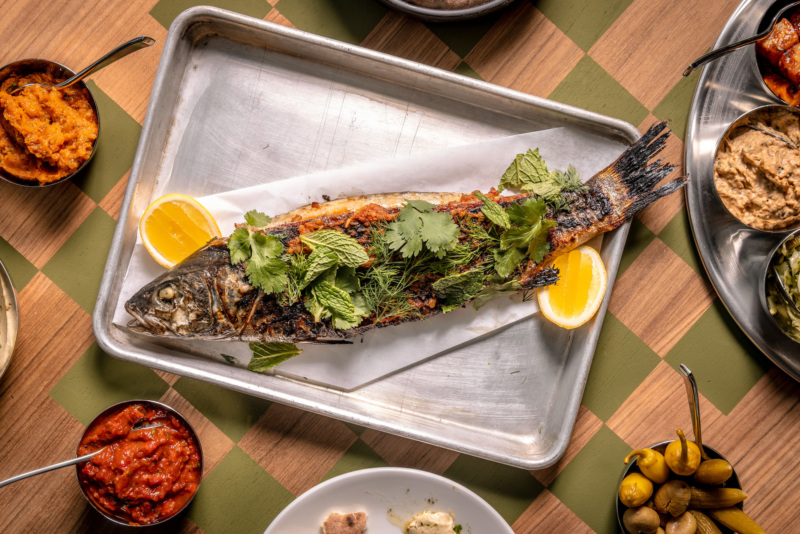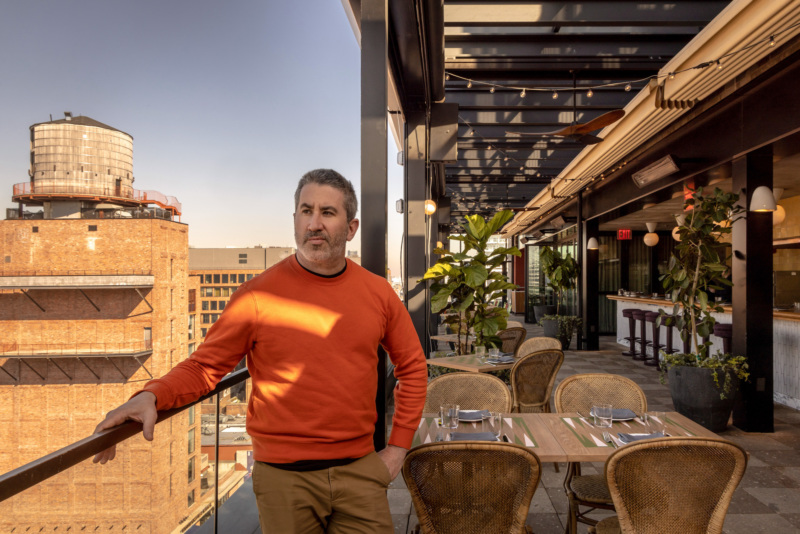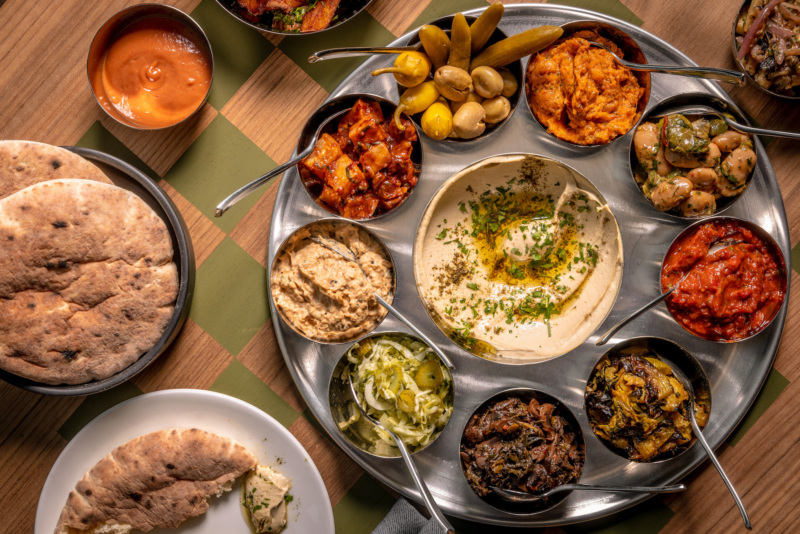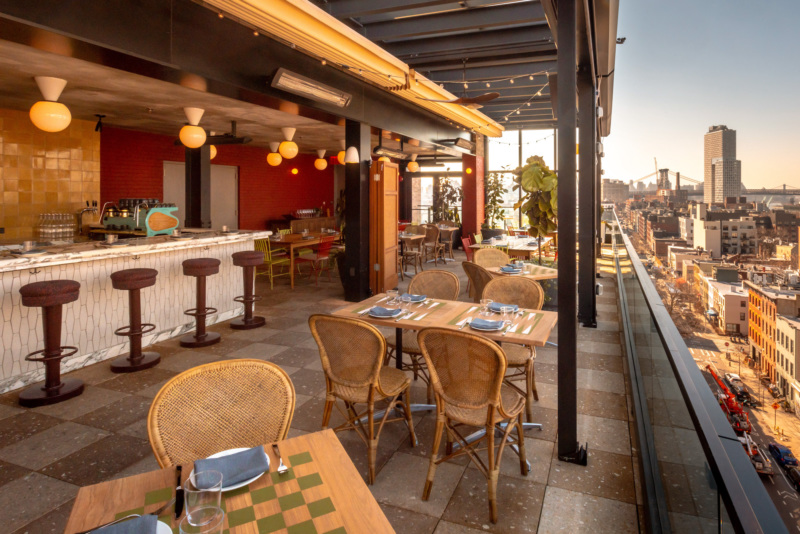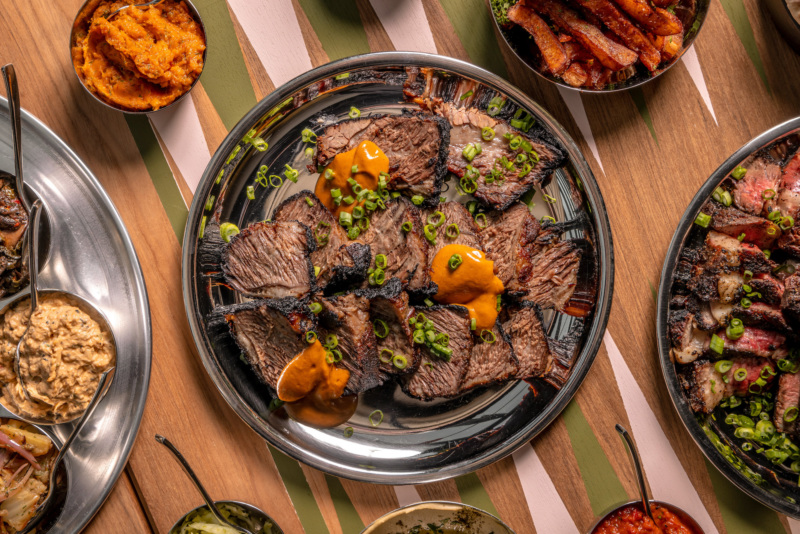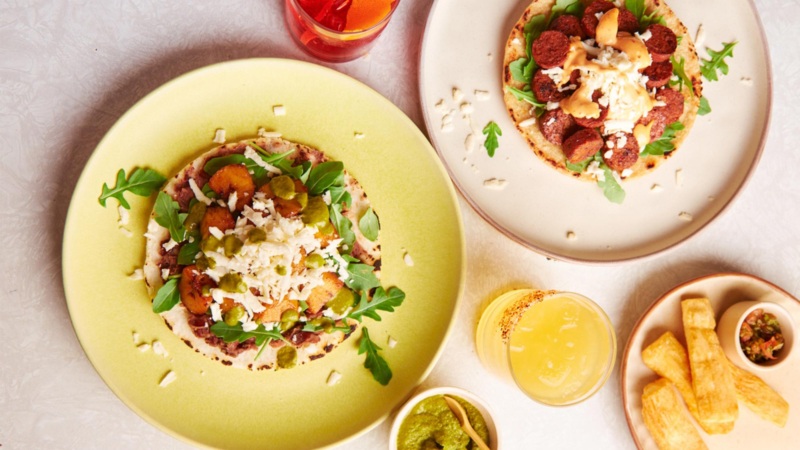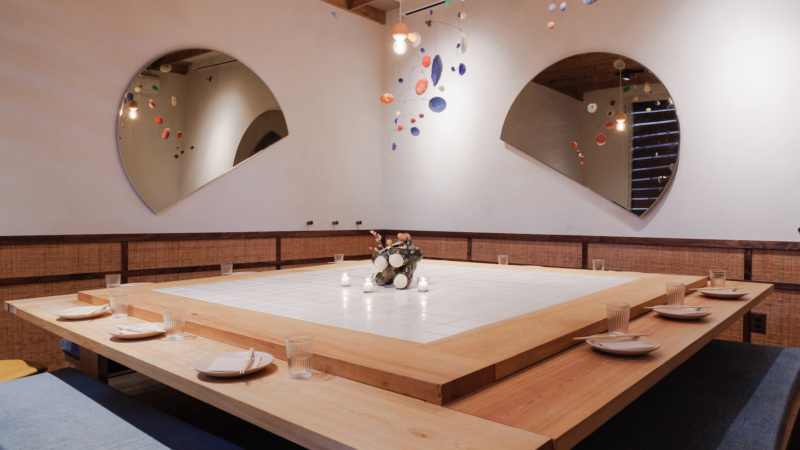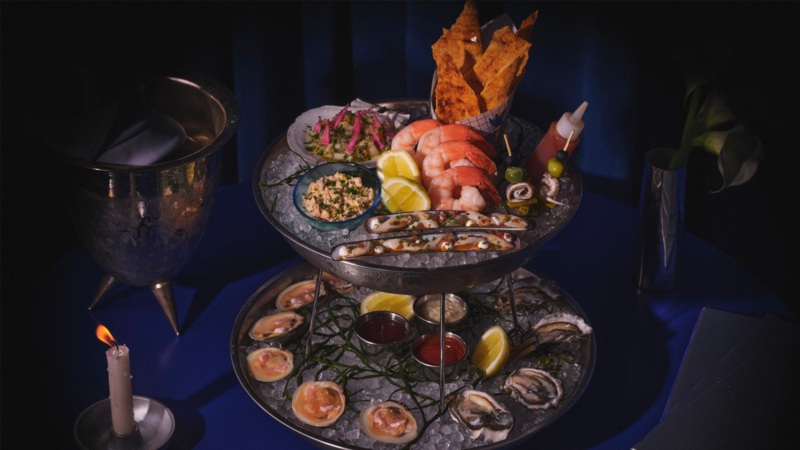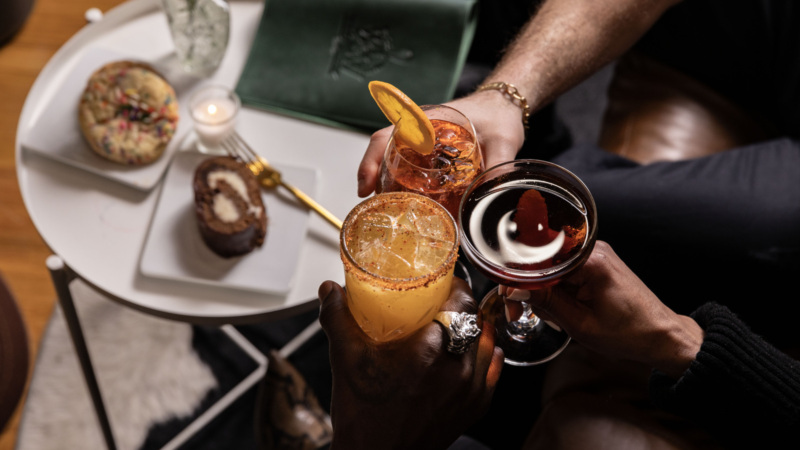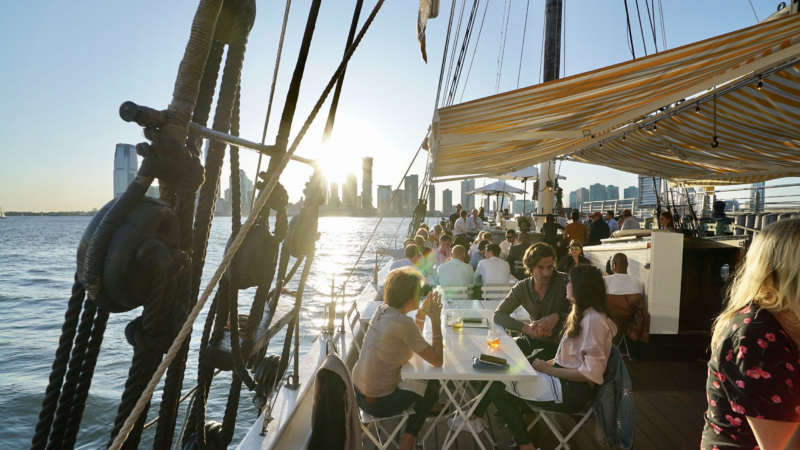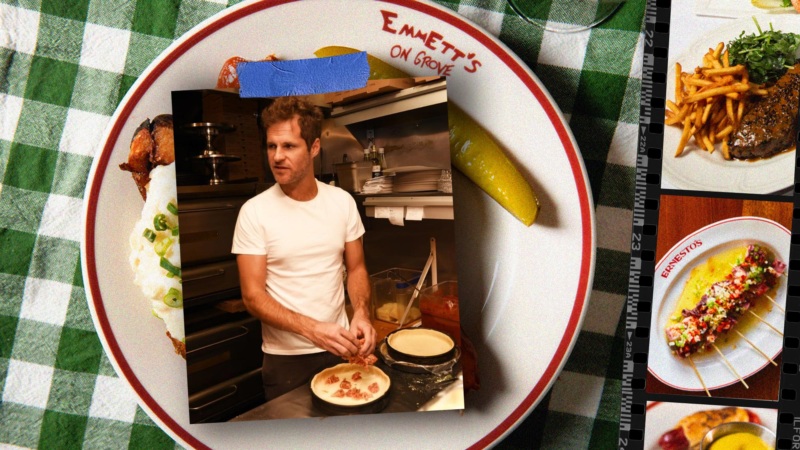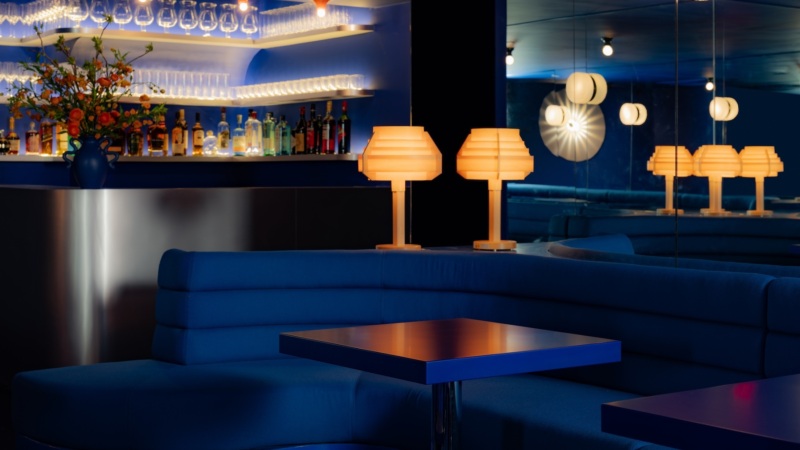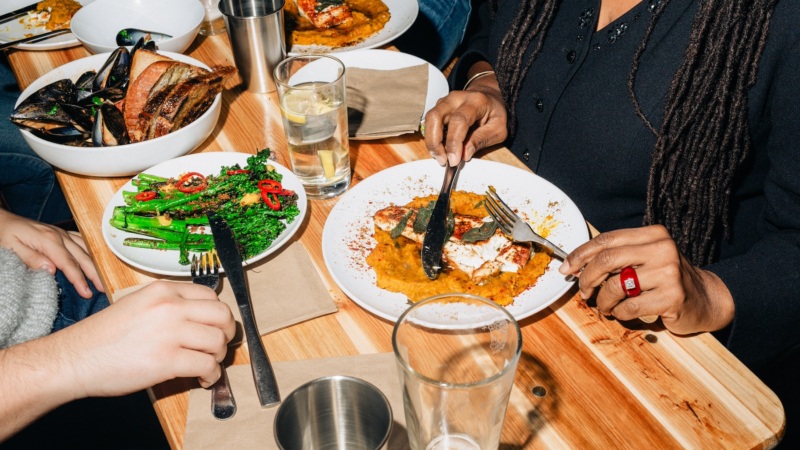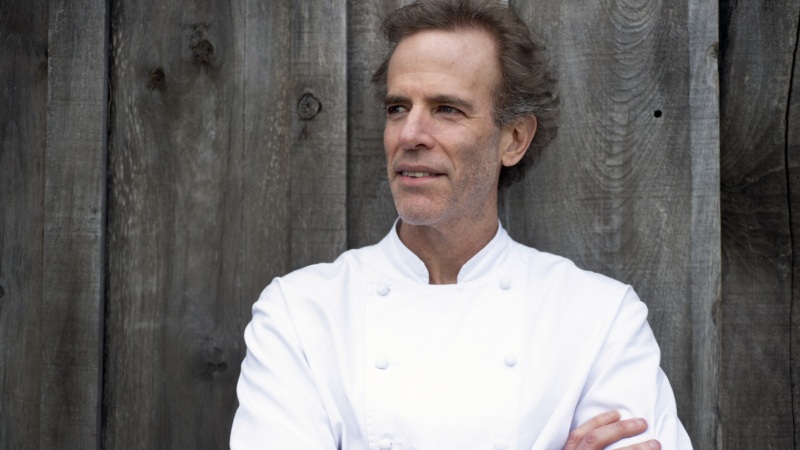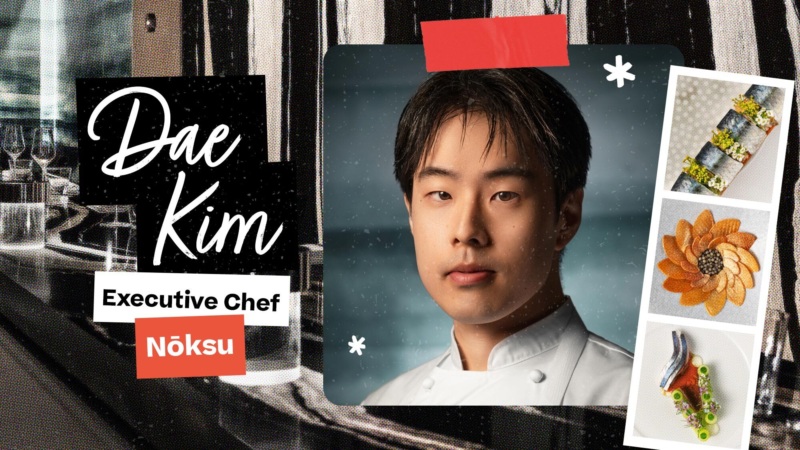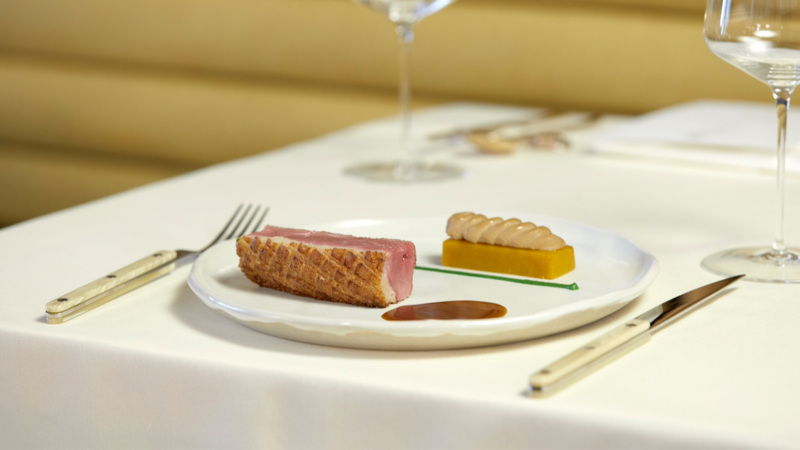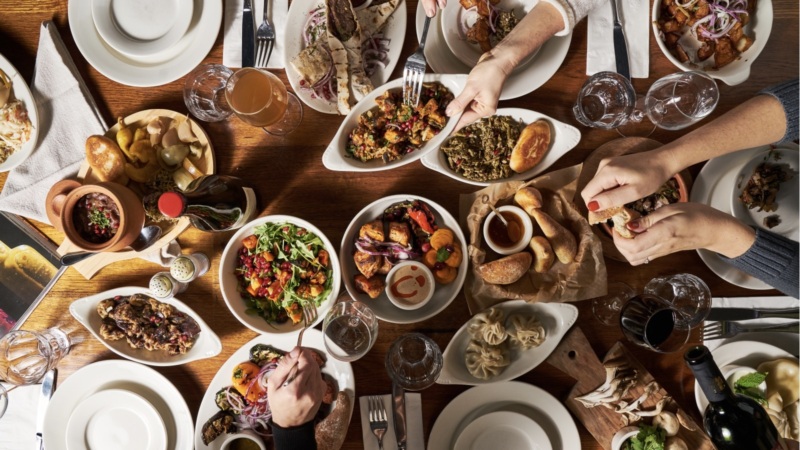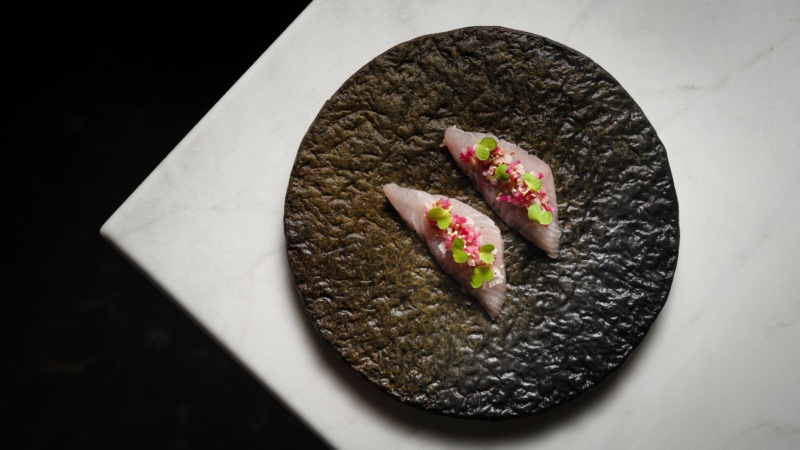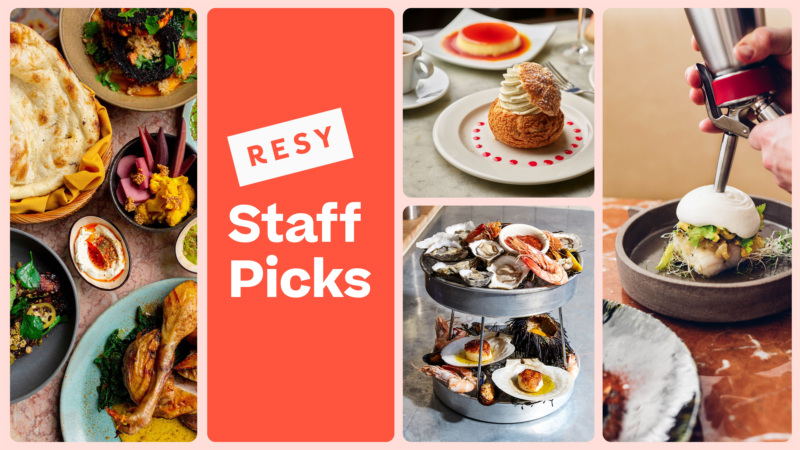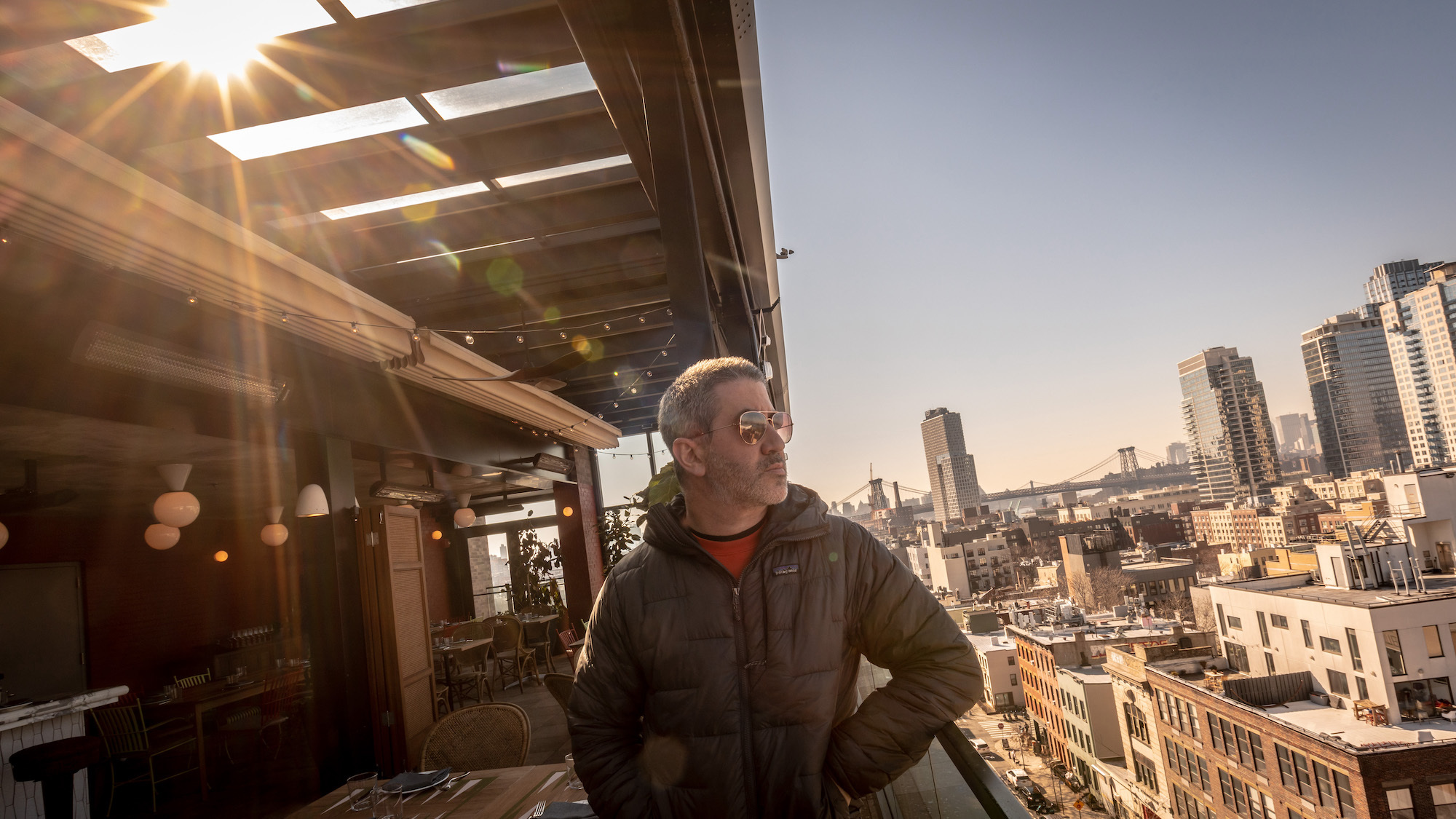
Mike Solomonov Is Back In Brooklyn. He Brought Laser Wolf — And An Appetite.
Chef Michael Solomonov used to come to Brooklyn for the parties, staying up into the early morning hours and doing things that you probably can’t print on a respectable website (or at least this one). In the two decades since, he has sobered up, built a restaurant empire in Philadelphia with business partner Steve Cook, and put Israeli cooking at the forefront of America’s culinary landscape with their flagship restaurant Zahav, racking up five James Beard Awards in the process.
Now, at long last, Solomonov is returning to Brooklyn.
Laser Wolf, the Israeli grill concept that is considered a sequel to Zahav, will open a second location at the beginning of May on the rooftop of the Hoxton Hotel in Williamsburg, Brooklyn. The restaurant has 225 seats and boasts some of the most panoramic views of the New York City skyline from this side of the East River.
Loosely named after the butcher from “Fiddler on the Roof,” Laser Wolf is a shipudiya, or an Israeli kebab house. As Solomonov tells it, the restaurant style is widespread in Tel Aviv and inspired him to open a similar concept stateside, but he was unable to fully translate the experience inside the Philadelphia restaurant space at his disposal at the time. So Zahav was born, utilizing a small charcoal grill for some of its cooking.
A decade later, with more cash and a lease in hand for an empty warehouse across town, the duo opened Laser Wolf, which utilizes a much larger grill for pretty much everything.
“We initially opened Zahav because of the Laser Wolf experience,” says Solomonov.
The formula is simple: just pick one of 13 meat or vegetable options from the charcoal grill, and the kitchen will handle the rest. Every table gets Solomonov’s famed hummus, served alongside pita and a tray of over a half-dozen salatim ranging from brussels sprouts with mango amba sauce and Turkish celery root to roasted red pepper relish and gigante beans with Castelvetrano olives.
While Laser Wolf may be new to Williamsburg, Solomonov reminds us that he isn’t a newcomer by any means. “I was coming to Williamsburg when it was not cool,” he says.
So, we did what any reasonable Solomonov follower would do: We asked the chef to spend a few hours with us on a crawl of his local faves, old and new.
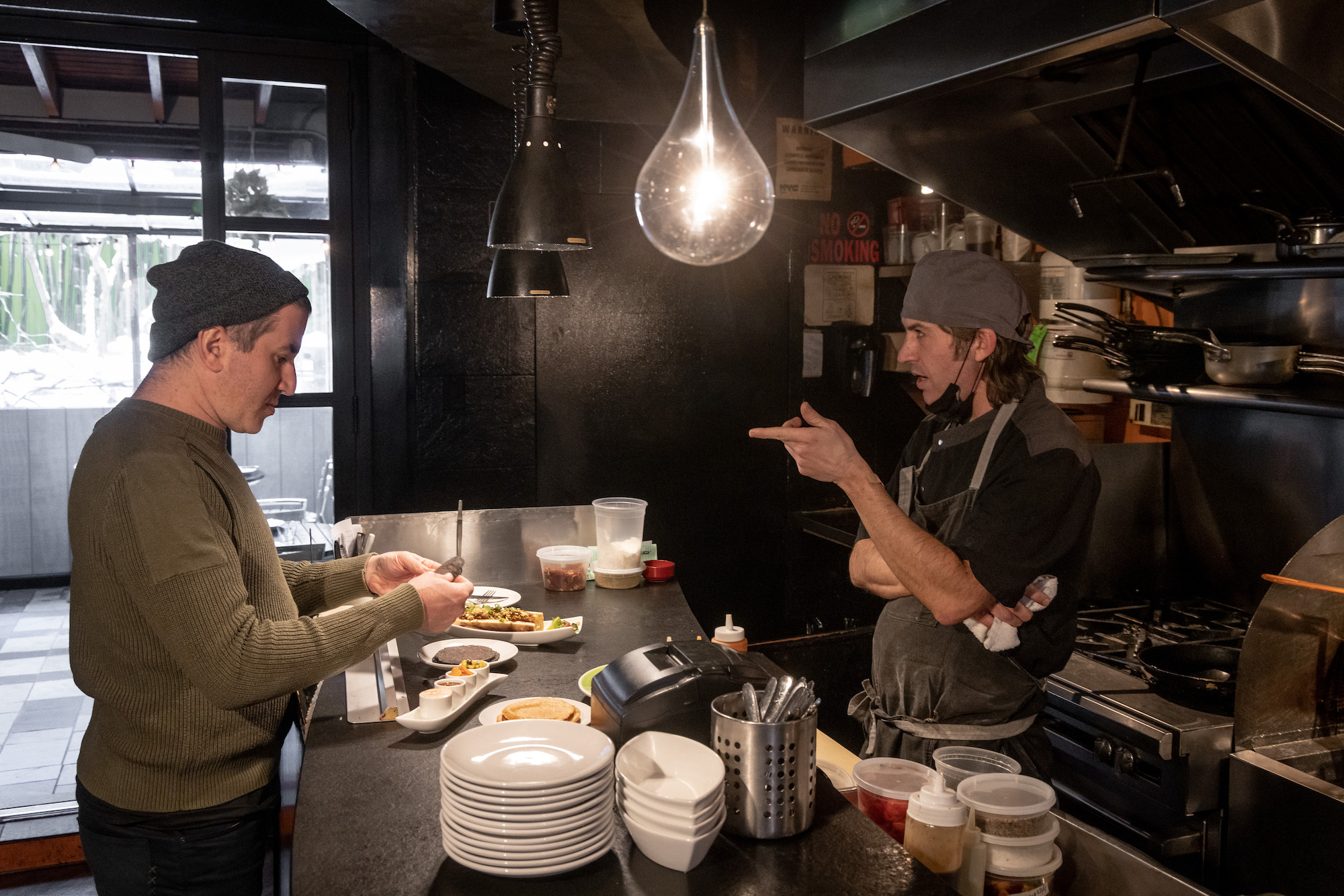
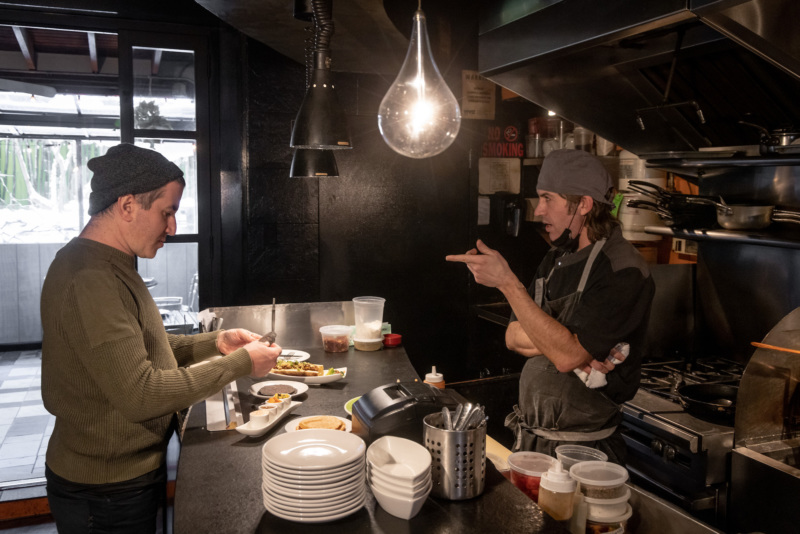
STOP 1: TRAIF
Solomonov and Traif chef Jason Marcus are both Jewish and have been friends for over two decades, getting their start working — and raging — together at Sunset Beach on Shelter Island over the summers. “It was such a nightmare of a restaurant, we’d do like 700 covers a night,” says Solomonov. “You’d cook and there’d be DJs and we’d be awake dancing on tables until 3 a.m.”
Since then, the two chefs have gone in drastically different directions with their restaurant concepts, especially as it pertains to their shared religion: Marcus created a bit of commotion when he opened Traif — a Yiddish word for “unkosher” — across the street from one of New York’s largest populations of Orthodox Jews in South Williamsburg.
Solomonov, meantime, has tirelessly promoted Israeli cuisine stateside, though he is not kosher himself, and neither are his restaurants. Consider it “foods that Jews enjoy,” without the limitations of being closed on the Sabbath or the meat being prepared by a shochet, a religious butcher of sorts.
“Laser Wolf is kosher-style, so we’re not going to mix milk and meat, we’re not going to have shellfish or pork or anything like that,” says Solomonov — as he rips into strawberry-glazed pork ribs, a longtime staple at Traif. “Zahav is the same way. But we’re not actually kosher.”
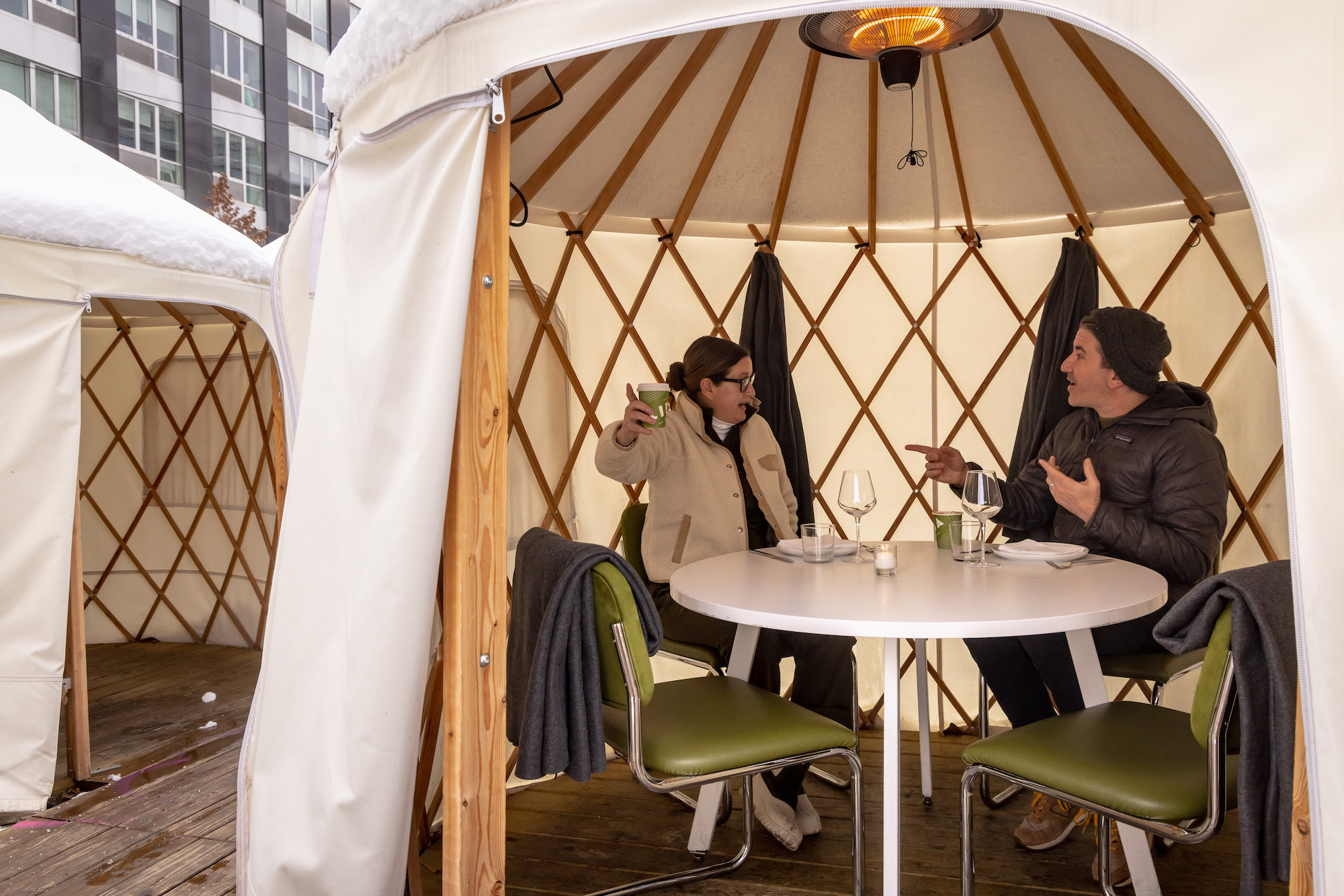
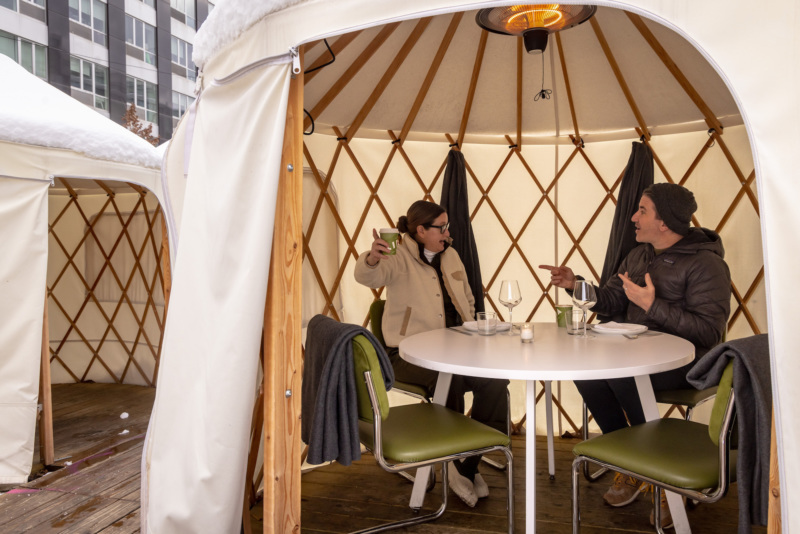
STOP 2: LILIA
Walking up to Lilia, Solomonov recognizes a familiar sight: a cluster of yurts offering outdoor dining, one of the only options in many cities during last winter’s COVID surge, just as vaccinations were starting to get underway. “The yurts probably saved the company last winter,” says Solomonov of his own mini village, set up outside Zahav.
There are other parallels between the two restaurants, not the least of which is that Lilia’s chef/owner Missy Robbins is a fellow James Beard Award laureate. Both Solomonov and Robbins got their big breaks working at Italian restaurants, Robbins at Spiaggia in Chicago and Solomonov at Vetri Cucina in Philadelphia. “I feel like Lilia and Zahav are kind of the same,” says Solomonov. “The thing that makes Lilia is the location. The space. The uniqueness of it. The singularity of it. It’s not something that can be reproduced.”
One more thing: The grill, which also plays a large role at Laser Wolf. The two chefs also came up in an era when sous vide circulators and molecular gastronomy were all the rage, but both abandoned those techniques in favor of open flames when they opened their own restaurants.
“I would get to Israel and get off the airplane, you would sit down at a restaurant, and there was a communal taboon,” says Solomonov of his travels that inspired both Zahav and Laser Wolf. “You eat it and you’re like, why the f— are we eating anything else? Why are we dissecting food? This is how you want to eat.”
“That’s how the food here came about,” Robbins chimes in. She uses a Grillworks wood-burning grill and has stacks of wood decorating the entryway to the restaurant. “I wanted to cook the food that I wanted to eat,” she continues, “not the food that was going to impress someone.”
All of this comes to a head at Laser Wolf Williamsburg, which boasts two six-foot-long charcoal grills — together longer than the entirety of many New York City restaurant kitchens.
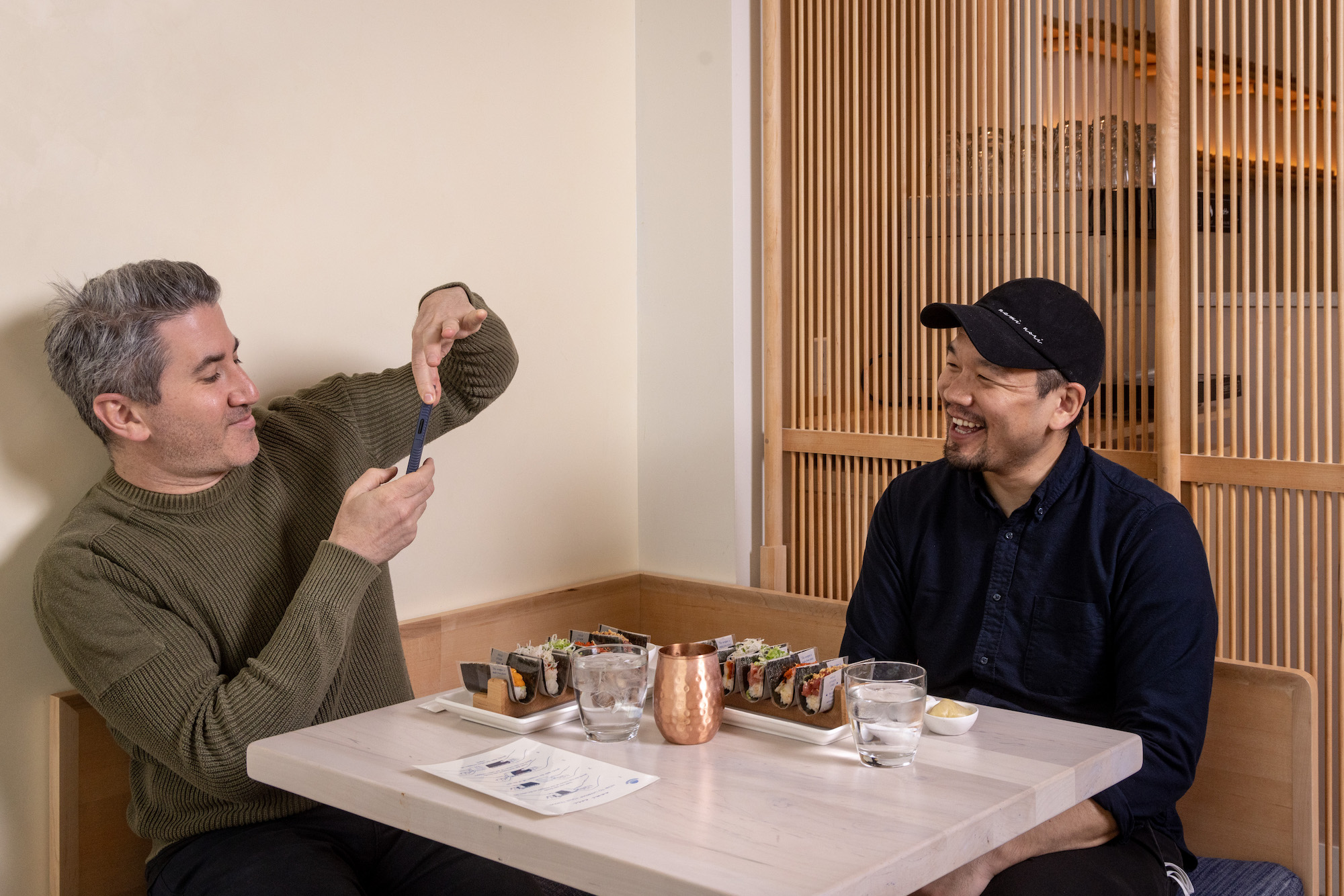
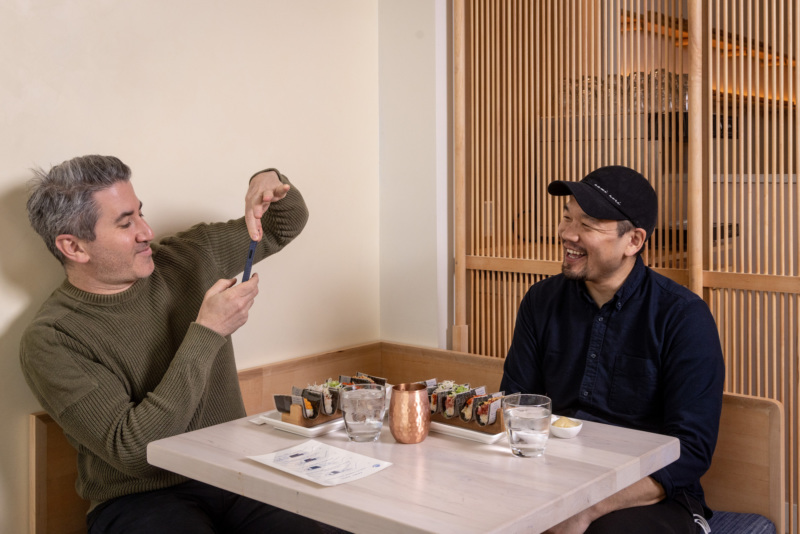
STOP 3: NAMI NORI
A short walk toward McCarren Park leads to the new Nami Nori Williamsburg, the second location of the hit West Village hand roll joint, which opened in October. The dining room reliably fills up every night despite challenges presented by the Omicron variant, and some slight adjustments have been required.
“It seems like there’s more young families in this neighborhood,” says Taka Sakaeda, the Masa veteran who left to help open the original Nami Nori back in 2019. “We’ve seen more strollers here since we’ve opened than we saw in the West Village for the whole year. So, it’s definitely more family-oriented.”
“The Williamsburg baby still eats raw fish, though,” quips Solomonov as he inhales a Hokkaido uni temaki, one of the more tony selections on the menu.
Actually, Sakaeda notes, there is a kids’ menu — all pieces are made sans wasabi, with cucumber rice and avocado rice temaki replacing the more complex items on the signature set — something not available at the West Village outpost. Solomonov is in disbelief but admits that even the no-frills Laser Wolf concept is subject to change.
“I wouldn’t be surprised if a day or two after we open, we go back to the drawing board with a couple different ideas,” says Solomonov. “The space is different, diners are different, and the way that we can execute is different.”
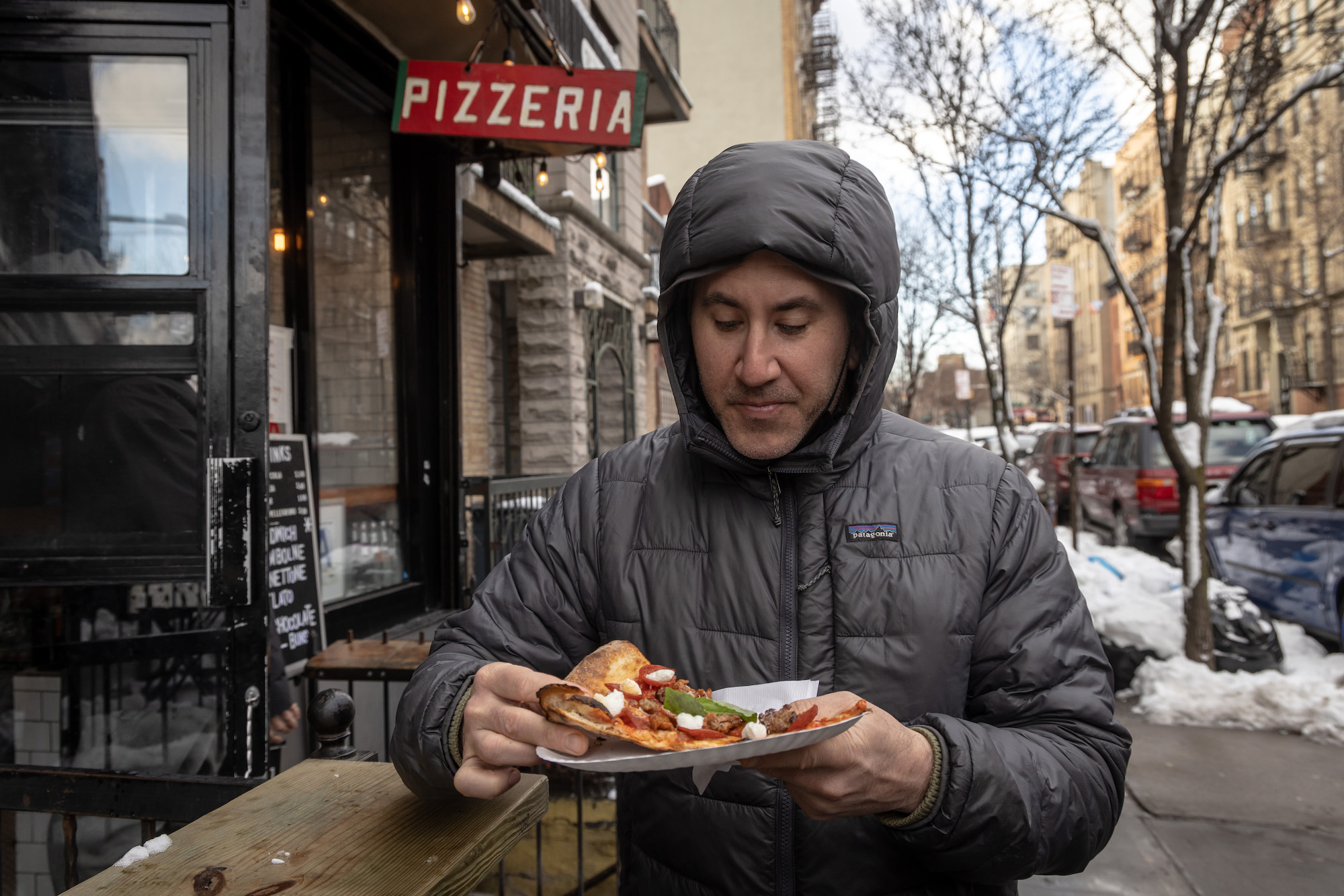
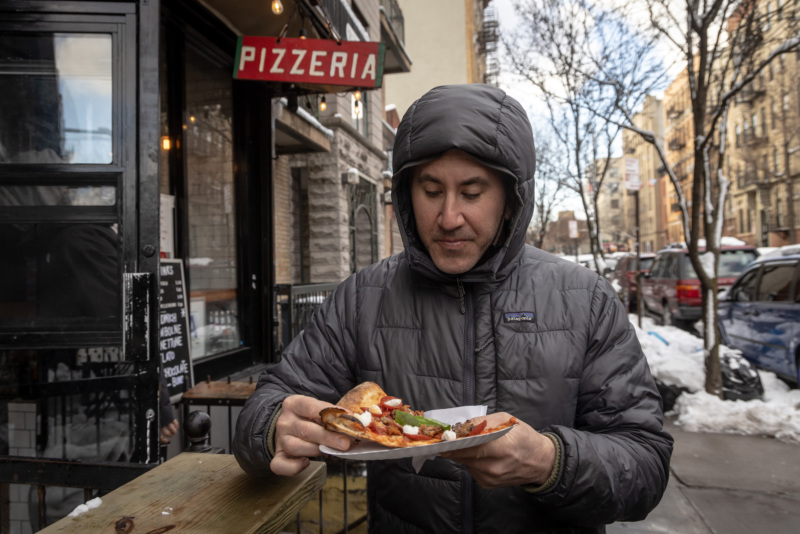
STOP 4: L’INDUSTRIE PIZZA
Though palpably stuffed, Solomonov can’t resist one last stop, for a slice of New York pizza. Thankfully, there are several very good options in Williamsburg, if none that have as fervent a fan base as L’Industrie.
“In the last five years we’ve actually had very good pizza in Philly,” Solomonov says. “But I love New York pizza because it is not beholden to Neapolitan.”
He appropriately orders the “New Yorker” slice, which is topped with sausage, pepperoni, and ricotta. His fold technique is not there, for which he can be forgiven as a Philadelphian. He nods in approval as he scarfs it down.
“It’s f—ing amazing!”
We’ll consider it a ringing endorsement from a resident of the sixth borough.
On April 29 and April 30, members of Global Dining Access by Resy have exclusive access to the New York outpost of Laser Wolf. Find out more here.
Gary He is a writer and photographer based in Brooklyn, N.Y. His work has been twice recognized by the James Beard Foundation. Follow Gary on Instagram. Follow Resy, too.

